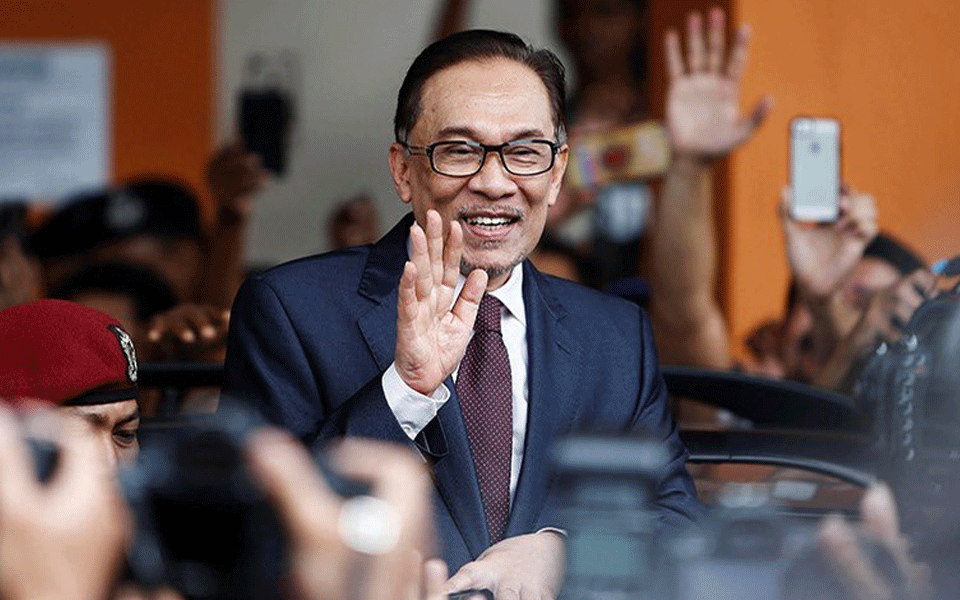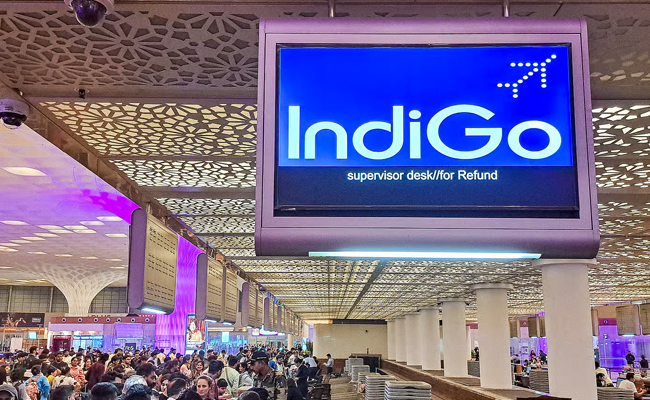Kuala Lumpur (AP): Malaysia's king on Thursday named reformist opposition leader Anwar Ibrahim as the country's Prime Minister, ending days of uncertainty after divisive general elections produced a hung Parliament.
Sultan Abdullah Sultan Ahmad Shah said Anwar will be sworn in as the nation's 10th leader at the palace at 5 pm (0900 GMT) at the palace.
Anwar's Alliance of Hope led Saturday's election with 82 seats, short of the 112 needed for a majority.
An unexpected surge of ethnic Malay support propelled Former Prime Minister Muhyiddin Yassin's right-leaning National Alliance to win 72 seats, with its ally Pan-Malaysian Islamic Party emerging as the biggest single party with 49 seats.
The stalemate was resolved after the long-ruling bloc led by the United Malays National Organisation agreed to support a unity government under Anwar.
Such a tie-up was once unthinkable in Malaysian politics, long dominated by rivalry between the two parties. Other influential groups in Borneo island have said they will follow the king's decision.
"His Royal Highness reminds all parties that the winners do not win all and the losers do not lose everything," a palace statement read.
The monarch urged Anwar and his new government to be humble, and said all opposing parties should reconcile to ensure a stable government and end Malaysia's political turmoil, which has led to three prime ministers since 2018 polls.
The palace statement said the king was satisfied Anwar is the candidate who is likely to have majority support but didn't give details of the new government.
Police have tightened security nationwide as social media warned of racial troubles if Anwar's multiethnic bloc wins.
Anwar's rise to the top will ease fears over greater Islamisation. But he faces a tall task in bridging racial divides that deepened after Saturday's poll, as well as reviving an economy struggling with rising inflation and a currency that has fallen to its weakest point.
Malays form two-thirds of Malaysia's 33 million people, which include large ethnic Chinese and Indian minorities.
"He will have to make compromises with other actors in the government that means that the reform process will be a more inclusive one," said Bridget Welsh, a Southeast Asia political expert.
"Anwar is a globalist, which will assure international investors. He has been seen to be a bridge builder across communities, which will test his leadership moving forward but at the same juncture offers a reassuring hand for the challenges that Malaysia will face."
It marked a second victory for Anwar's reformist bloc. It won 2018 elections that led to the first regime change since Malaysia's independence from Britain in 1957. But the government collapsed after Muhyiddin defected and joined hands with UMNO to form a new government. Muhyiddin's government was beset by internal rivalries and he resigned after 17 months. UMNO leader Ismail Sabri Yaakob was then picked by the king as the prime minister.
Many rural Malays fear they may lose their privileges with greater pluralism under Anwar. Fed up with corruption and infighting in UMNO, many opted for Muhyiddin's bloc in Saturday's vote.
Let the Truth be known. If you read VB and like VB, please be a VB Supporter and Help us deliver the Truth to one and all.
Bengaluru (PTI): The Karnataka government has issued directions to municipal corporations across the state to regulate and prohibit feeding pigeons in public places, citing serious public health concerns.
Deputy Secretary to Government V Lakshmikanth has written to the Urban Development Department requesting it to issue directions to the Greater Bengaluru Authority (GBA) and all municipal corporations to take immediate steps to implement the measures.
In an official note dated December 16 issued by the Health and Family Welfare Department and released to the media on Wednesday, the department said uncontrolled feeding of pigeons in public places has resulted in large congregations of birds, excessive droppings and serious health concerns, particularly respiratory illnesses linked to prolonged exposure to pigeon droppings and feathers such as hypersensitivity pneumonitis and other lung diseases.
ALSO READ: Chinese GPS tracker found on seagull near Karwar Coast
"The commissioner, the Greater Bengaluru Authority and the Commissioners and chief officers of other municipal corporations shall take necessary action to mitigate the causes of dangerous disease spread by pigeon and enforce specified guidelines in their respective jurisdiction," the note said.
According to the department, these include a prohibition on feeding pigeons or causing pigeons to be fed in areas where it may cause nuisance or pose a health hazard to the public. Pigeon feeding shall be permitted only in designated areas in a controlled manner, subject to certain conditions.
"The designated areas may be selected in consultation with stakeholders. The responsibility for upkeep of the designated areas and compliance to the directions shall be taken up by some charitable organisation or an NGO. The feeding in designated areas shall be permitted only for some limited hours in the day," it said.
The note further stated that authorised officers of local authorities shall issue on-the-spot warnings and may impose fines for violation of the order, or lodge complaints to prosecute offenders under Sections 271 (Negligent act likely to spread infection of disease dangerous to life) and 272 (Malignant act likely to spread infection of disease dangerous to life) of the Bharatiya Nyaya Sanhita.
It also directed local authorities to conduct public awareness campaigns, including the display of signboards, banners and digital messages, explaining the health hazards associated with pigeon droppings and feathers, the content of the regulatory directions and penalties for violations, and alternative humane methods of bird conservation that do not endanger public health.





